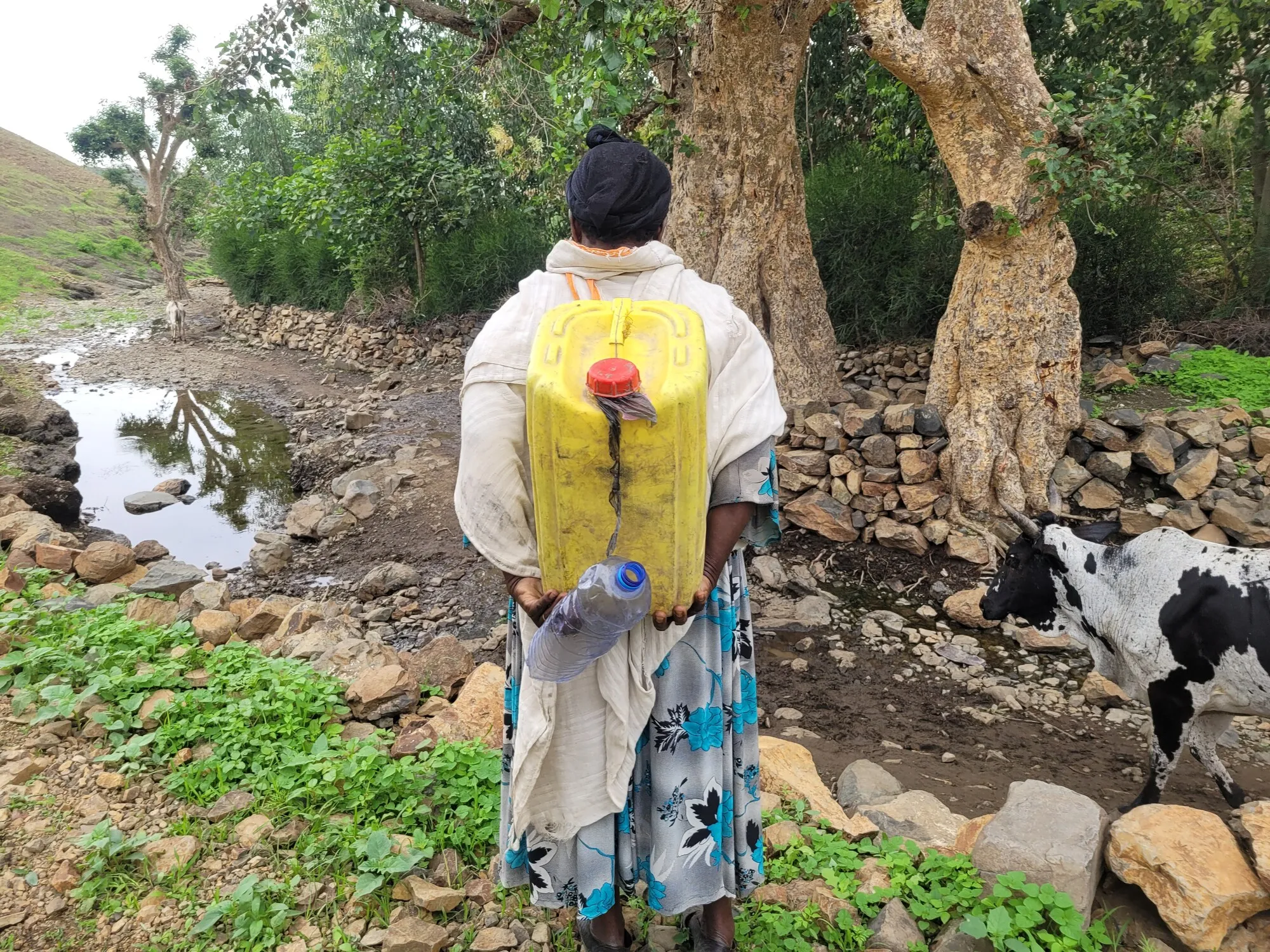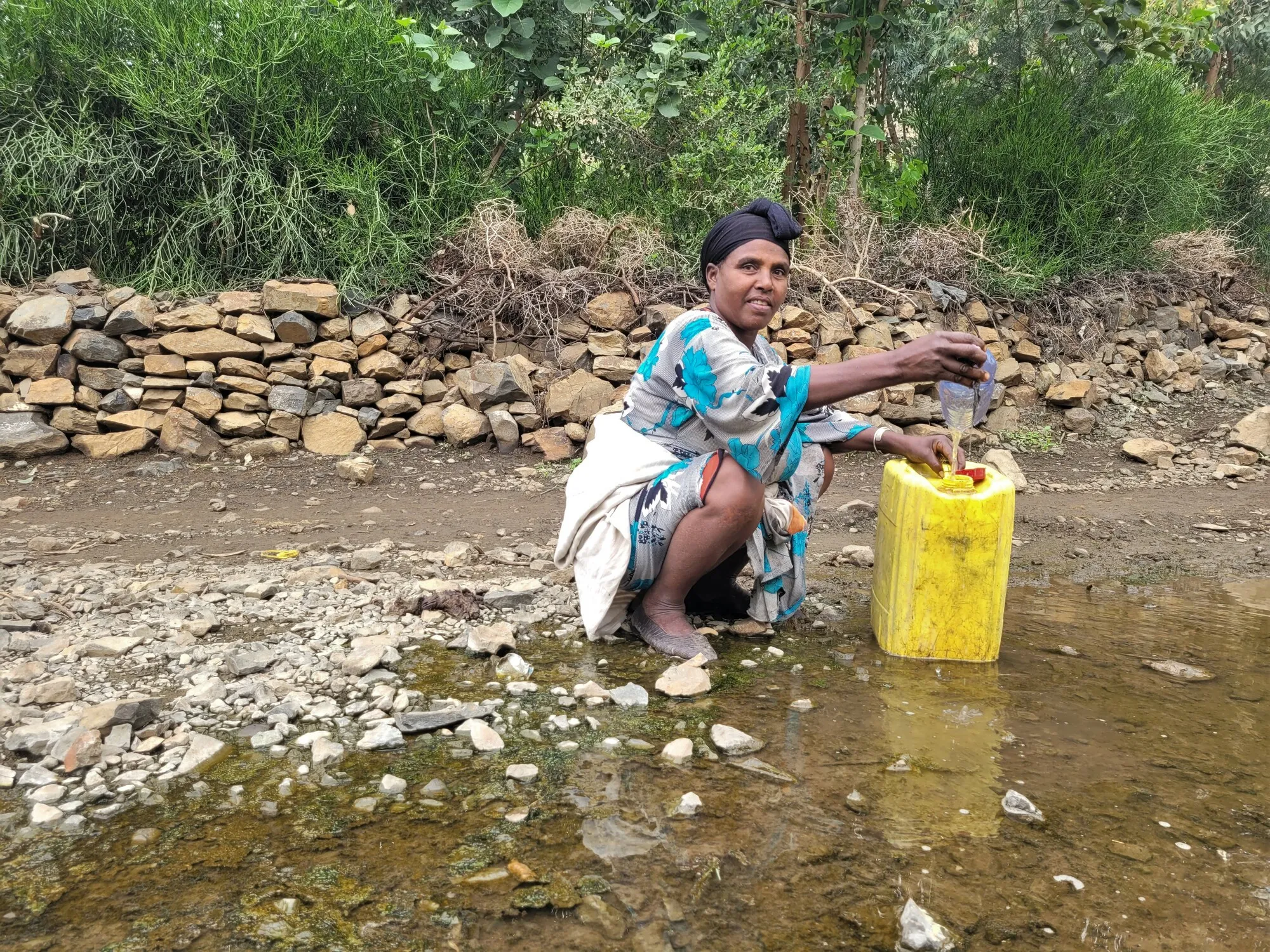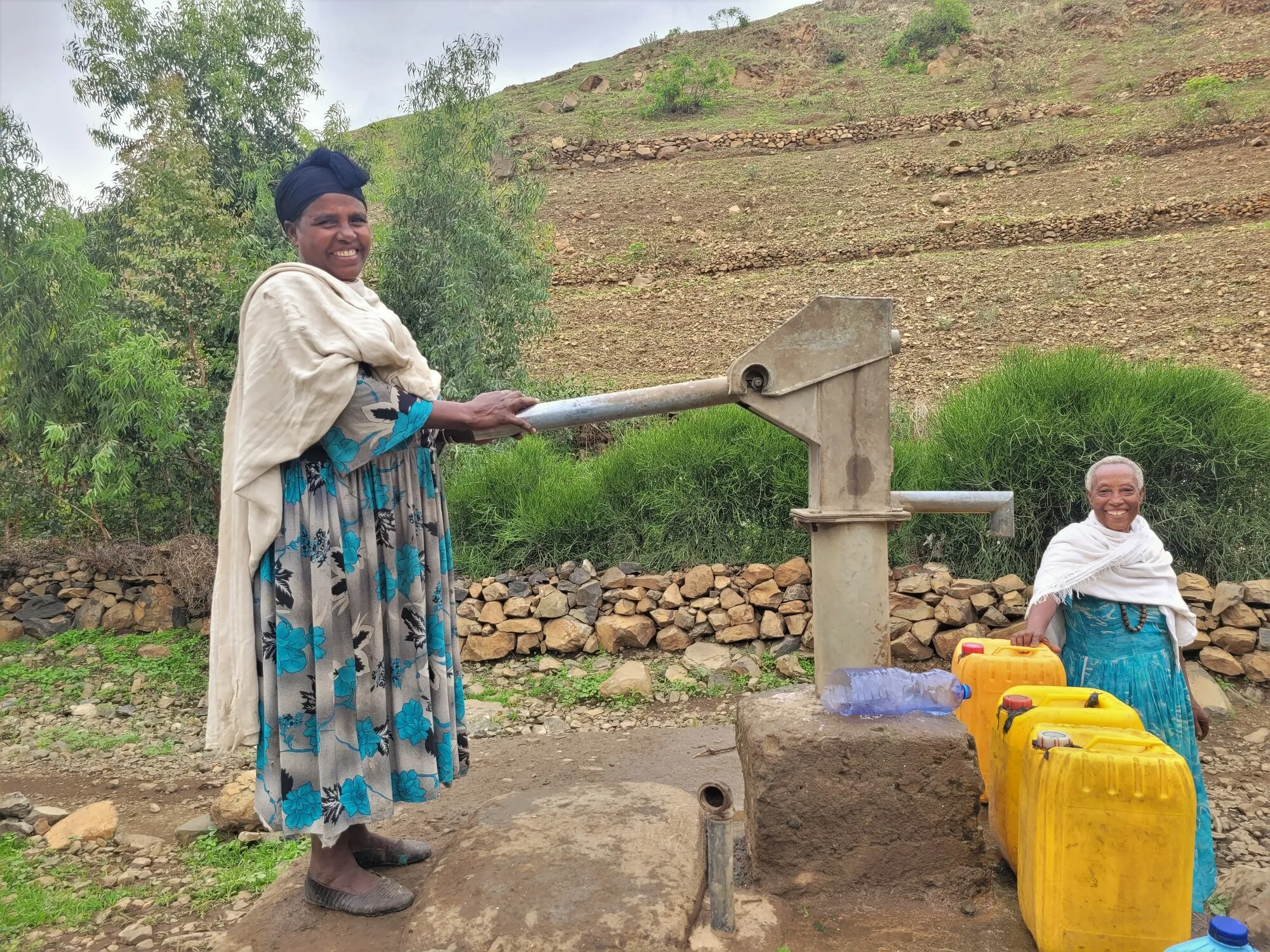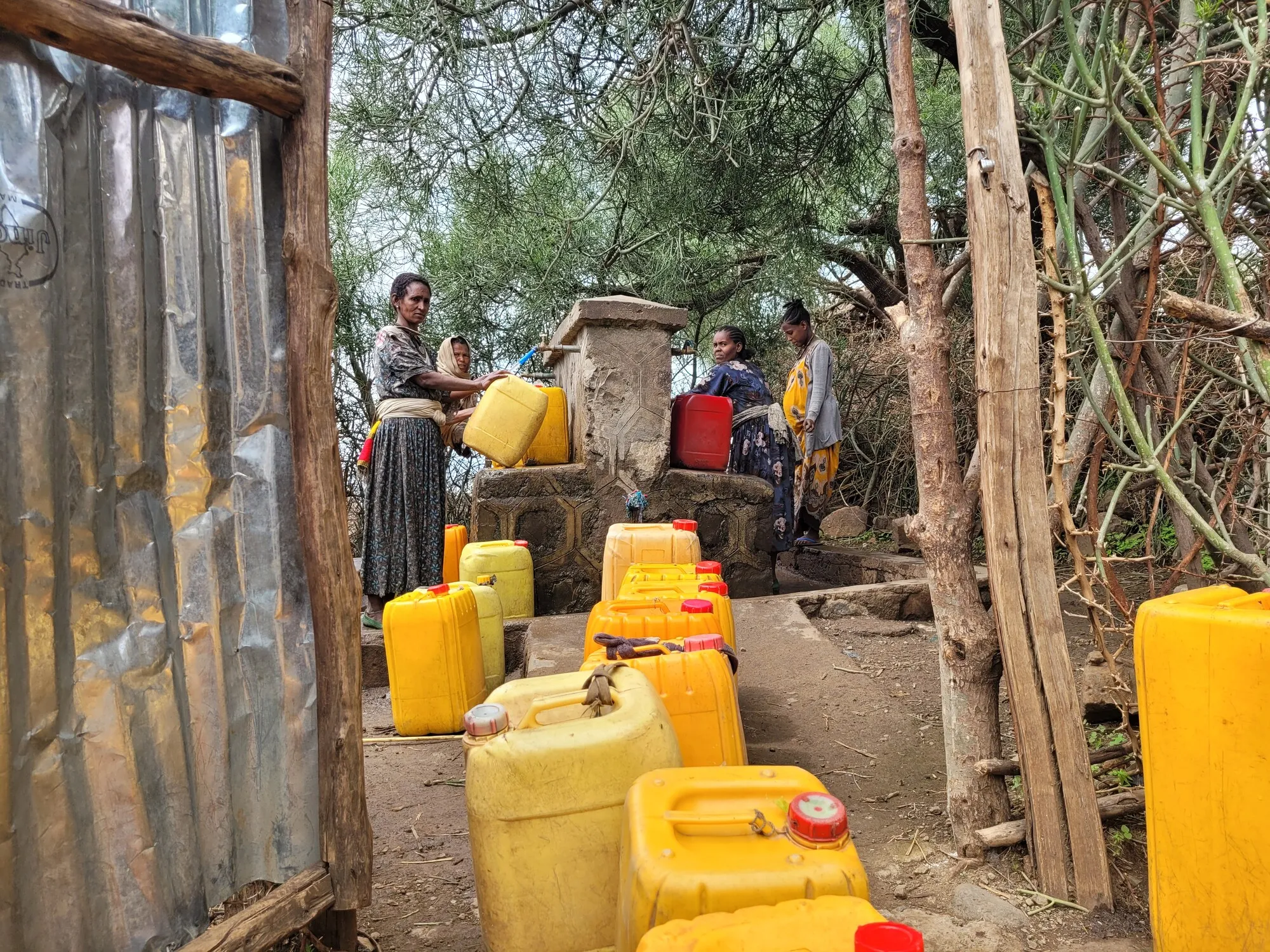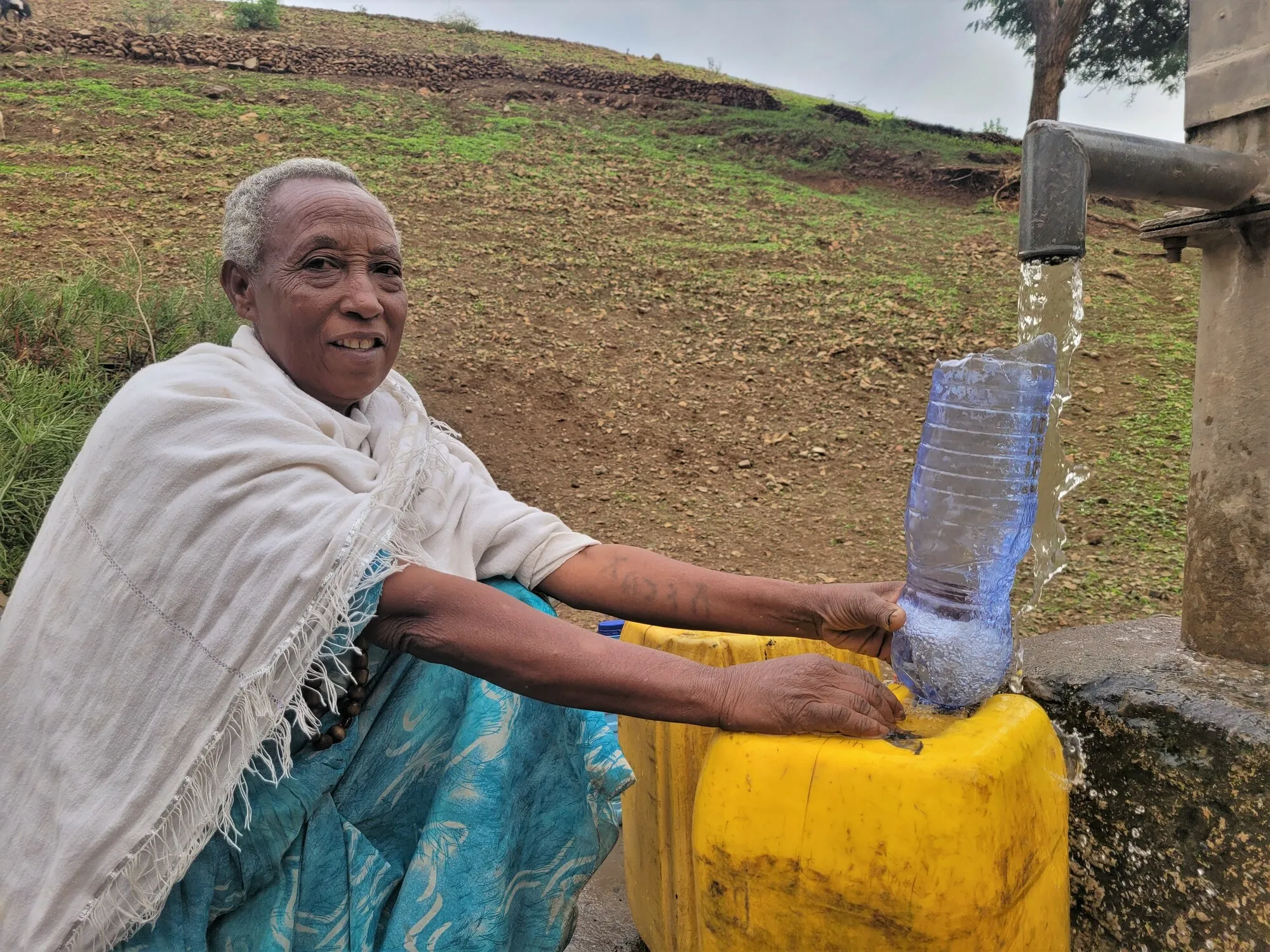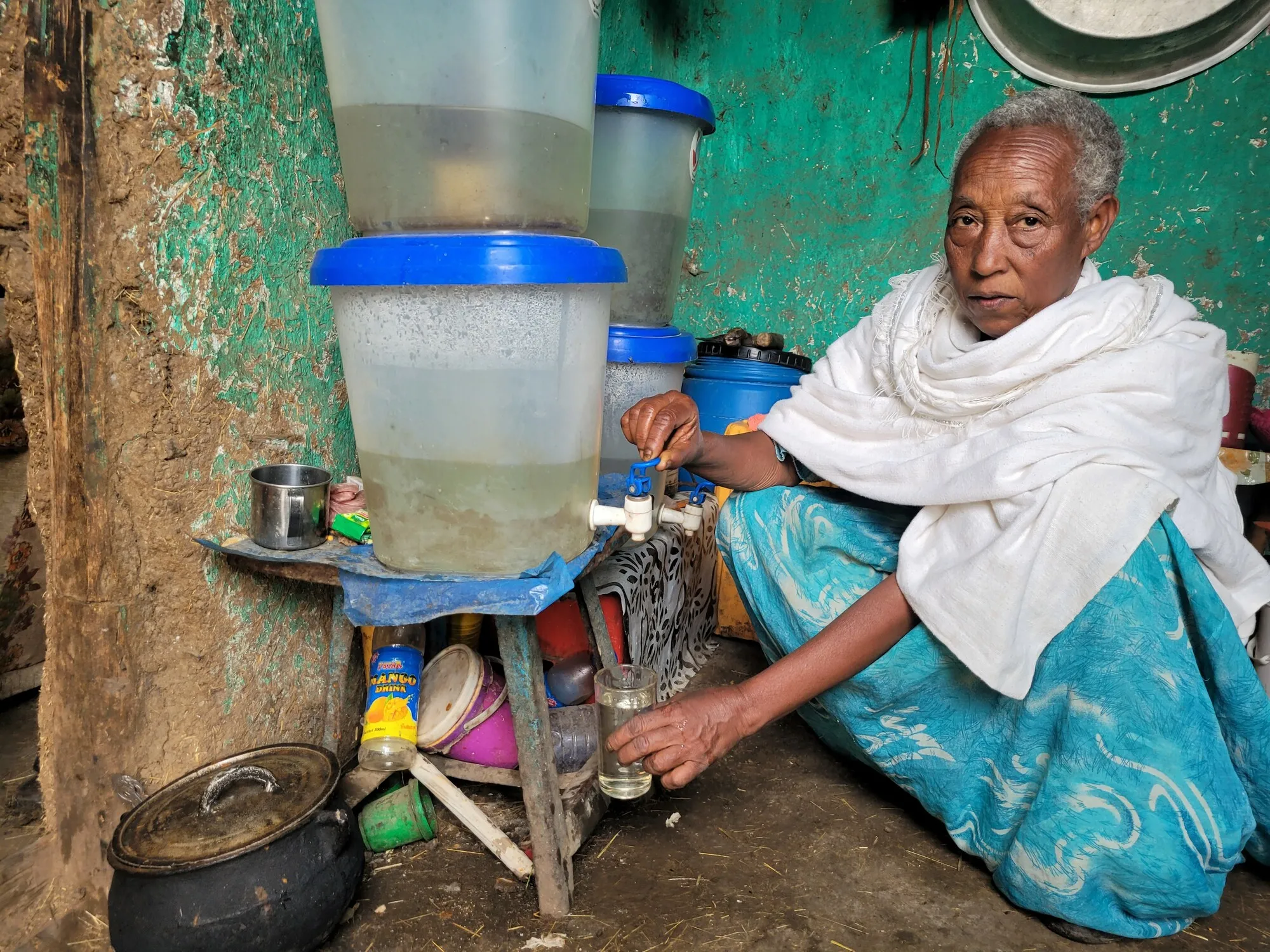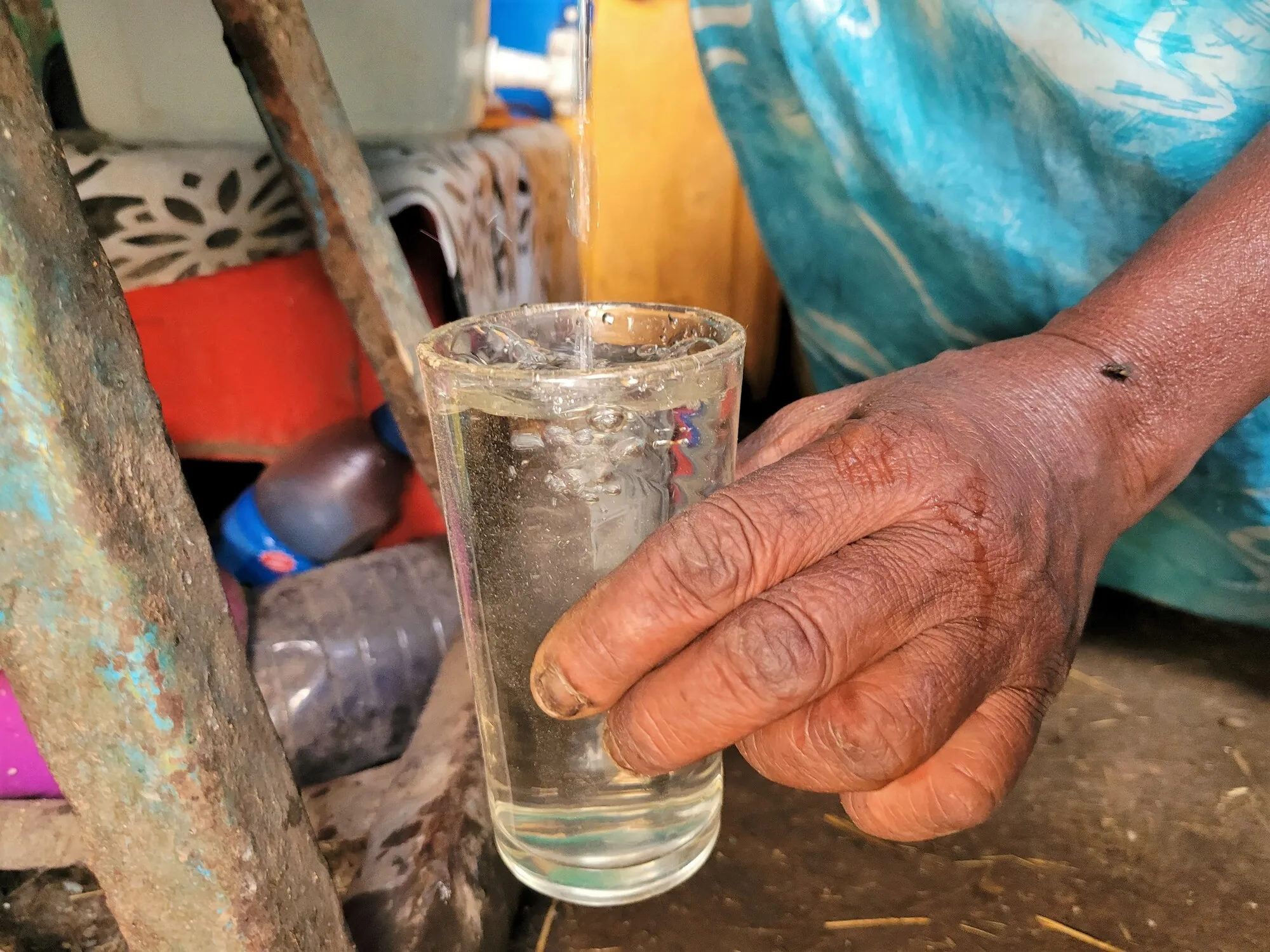For many women and girls, fetching water can just be the beginning of the day’s trials. They also have to find enough firewood to cook.
The area around East Belessa has been cleared of trees – part of the deforestation that contributes to the cycle of climate impacts – so finding the firewood can be difficult, and then when they do, the smoke from cooking with it can cause severe health issues in the eyes and lungs.
“Especially the children suffer,” says Enaneya, 35.
Like access to clean water, cleaner cooking techniques can help build community resiliency. CARE has helped families like Enaneya’s build energy-saving stoves that smoke less and cook more efficiently. Traditionally, women in East Belessa have cooked meals over open fires, an inefficient method that allows the bulk of the fire’s heat escape.
These new, insulated stoves are built with local materials, and they eliminate direct contact with the flames, centralize the heat so the food cooks faster, and use five times less firewood than the previous method. They also have lids, keeping the smoke and steam inside.
“We save a lot of money,” Enaneya says. “I can cook five times as many meals with the same amount of wood.”
CARE provides training for women to learn how to build these energy-saving stoves, which they then can sell in their communities. Aster, 40, is one of six women in this village who CARE has trained.

